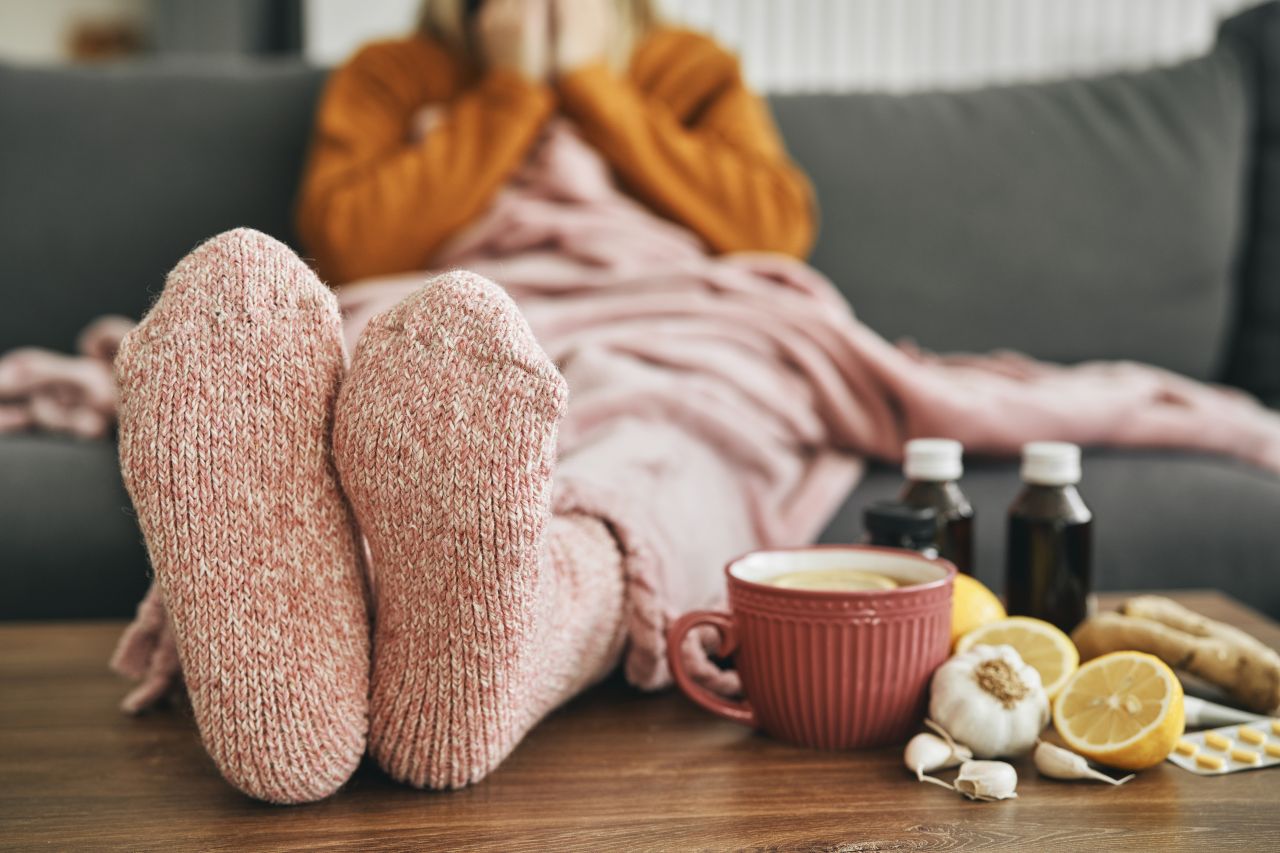10 immune system hacks for a prosperous freelancing career
The average human spends two to three years of their life with a cold. It’s time to fight back, freelancers. We need to take prudent ownership of our well-being and immune system because creativity, coughs and colds don’t mix!

Image licensed via Adobe Stock
It’s a nightmare for freelancers: if we don’t work, we don’t get paid. Or we do work, but everything takes longer – or isn’t as inventive as it would be if we were on top form – which lags us behind on other stuff. Which leads to an avalanche of deadlines, stress and late nights, meaning more chances for viruses to make our lives a misery – it’s a vicious circle that’s a disaster for productivity.
Here are 10 top tips for dodging the cold – or sending it packing quick-smart.
1. Do not touch your eyes, ever
The primary way that germs enter your body is from your fingers to your eyes; viruses contaminate people’s hands, from covering sneezes and suchlike.
Shaking hands is a prolific germ spreader: in fact, Arsenal Football Club banned handshaking at the training ground, to halt the spread of sickness. As business people, it’s impossible to blanket-ban handshakes – but you can control what happens next.
Rather than foolishly fingering your tear ducts and infecting yourself with the latest virus-about-town, condition yourself never to touch, scratch or sweep your eyes with anything other than a pristine, box-fresh tissue.
Wash your hands often and fastidiously – taking extra care to scrub your fingertips (according to those hand-washing posters in hospitals, fingers are chronic germ havens).
And don’t go picking your nose either! Germs can transfer nose-to-nose too.
2. Get your sleep on
We multi-careerists are all super busy, so much so that sleep can seem expendable sometimes. But there are loads of studies that say a restriction on quality sleep hampers your defences, by stunting the production of vital proteins, antibodies and cells.
A recent study in the Journal of Sleep said that adults who sleep for five or six hours a night are four times as likely to catch a cold as those who get seven or eight hours slumber.
So give your body a break by getting your full eight hours during the autumn and winter. You know it makes sense.
3. Avoid people spluttering – and guilt trip them too
I’m not advocating violence, but if people who didn’t make an effort to contain their germs all got a solid punch in the face, there would be a lot less of us spreading colds about.
And we shouldn’t settle for a sluggish, understated, ‘for show’ version of putting a hand over our mouths either – that should be worth two punches. We need a concerted effort all round. I’m talking a rapid-fire hanky, both-hands-over-the-mouth or mouth down the T-shirt coughing – something that shows people you care for your fellow human.
Seeing as violence isn’t socially acceptable, a simple, “cover your germs you filthy _________” will have to suffice unless it’s a client. They get to do what they like, I guess.
4. Garlic: it really is the future
Garlic doesn’t just scare off vampires, it sees off colds too. That’s according to this double-blind study where garlic ‘users’ suffered almost a third fewer colds than those who avoid it like the plague.
Another study showed that garlic users were less likely to have colds that affect their work performance: they had 61% fewer adverse effects than non-users.
Garlic is rich in antioxidants, which boost immunity and fight inflammation. Experts recommend that by adding one to two cloves per day to your diet, you can get the full benefits – without causing gas or acid reflux.
5. Feed a cold – and don’t scrimp on protein
The old wives tales about feeding a cold is true: when mice are exposed to the flu, they have an increased propensity to get ill – and stay sick longer – if they are on a low-calorie diet. Protein levels are also a crucial factor. According to Harvard University, “in mice, diets deficient in protein reduce both the numbers and function of T cells.”
T cells are a vital facet of your immune system; an effort to ramp up your protein intake is a good idea. For healthy ideas, see the 10 most creative foods in your local supermarket.
6. Avoid social stress
Another Harvard University mouse trial found that social stress is more damaging to the immune system than physical stress. This is pretty grim, but – mice who were bullied (not injured) by a big angry mouse were twice as likely to die from a bacterial infection than control groups of mice who suffered physical stress (food deprivation) — poor mice.
To stay cold-free, do what you can to avoid stressful social situations – or seek help to make them less stressful, perhaps with a hypnotherapist.
7. Ginseng then you’re winning
Ginseng is one of the most popular herbal remedies in the world. It’s used in Eastern medicine to boost mood and assuage fatigue – and there’s evidence it may jumpstart the immune system too. This study focusing on users of North American ginseng shows symptoms were 30% lower and 34% shorter than non-users.
But beware, excessive ginseng use can lead to blurred vision, excitation and dizziness. Please consult a physician before embarking on a ginseng bender.
8. Multi-vitamins are better than mega-doses of Vitamin C
According to Harvard University, taking multi-vitamins is better than mega doses of any one vitamin. The jury is out on how much effect Vitamin C has on its own, with lots of contradictory studies. But the combination of a healthy nutritious diet, with a multi-vitamin supplement to plug any gaps, is regarded as a much better way to keep your immune system top-notch.
9. The placebo effect is getting stronger
While there is no evidence that Echinacea, Goldenseal or liquorice root are any help at all, some interesting new research claims that over the last 23 years, the general effectiveness of the placebo effect is getting stronger. The upshot? Whatever you’re into, if you believe in it, it could stand a high chance of working.
According to this study, the response to placebos in clinical trials for neuropathic pain has been rising over time. Why, who knows? But one thing is for sure; it’s provoked a fascinating debate among the medical research community.
10. If in doubt, Skype it
Nobody ever caught a cold off a Skype call. Fact.
With thanks to Harvard University, for inspiration and information.




 by Tüpokompanii](https://www.creativeboom.com/upload/articles/58/58684538770fb5b428dc1882f7a732f153500153_732.jpg)


 using <a href="https://www.ohnotype.co/fonts/obviously" target="_blank">Obviously</a> by Oh No Type Co., Art Director, Brand & Creative—Spotify](https://www.creativeboom.com/upload/articles/6e/6ed31eddc26fa563f213fc76d6993dab9231ffe4_732.jpg)
















